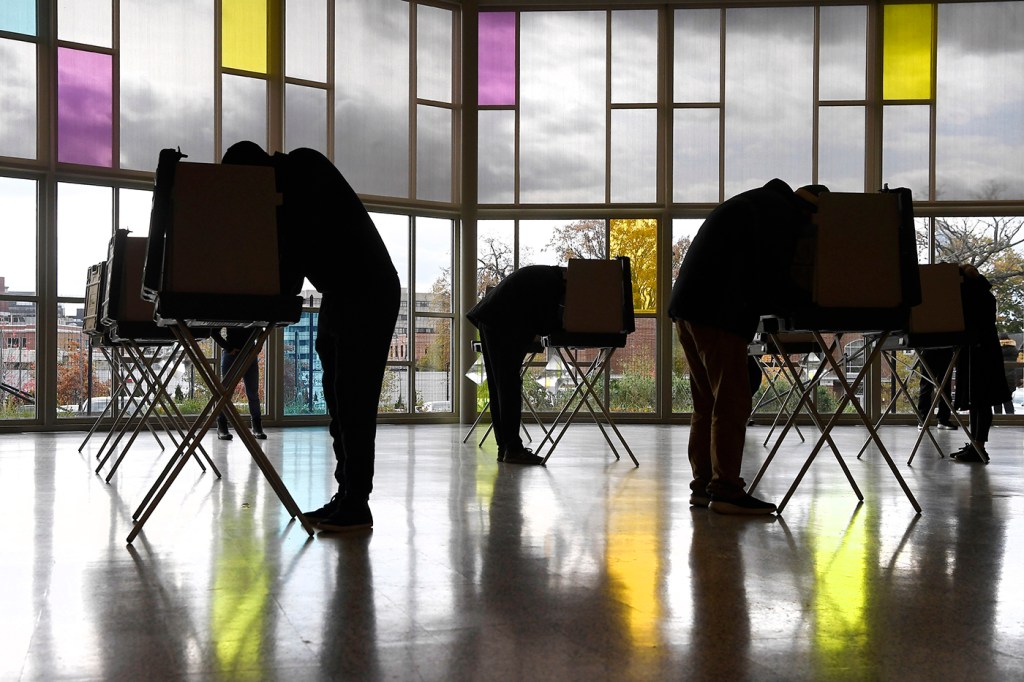Will recounts in swing states decide the 2024 presidential election?
“The bottom line: expect to see recounts,” says Jeremy R. Paul, a professor of law and former dean of the Northeastern University School of Law.

By now, you’ve heard it a thousand times over: the 2024 presidential election will be decided on razor-thin margins — it’s a coin flip.
That’s because the election will turn on the results in the seven swing states: Georgia, North Carolina, Pennsylvania, Michigan, Wisconsin, Nevada and Arizona, where it could come down to just thousands of votes. For that reason, recounts and legal challenges could snowball for days, if not weeks, says Jeremy R. Paul, a professor and former dean of the Northeastern University School of Law.
“It’s just not possible to anticipate in advance all of the variety of things that could go wrong and delay an outcome next week,” Paul says.
Most states have mandatory recount provisions if the results of an election fall within a certain percentage — and then a higher threshold that allows a losing candidate to seek a recount if they see fit, Paul says.
But the rules vary widely across the country.

In Pennsylvania, an automatic recount is triggered in a statewide race if the margin of victory is within a half of a percentage point. Voters, too, can request recounts in specific precincts if they suspect foul play. (“Petitions must be filed in the five days after the computational canvass and before certification,” the rules state.)
In North Carolina, candidates can request a recount if there’s a 1% or less difference between their share of the vote and the winning candidate.
Featured Posts
In Nevada, only the losing candidate can ask for a recount, unless there is a tie. Meanwhile, in Wisconsin, the losing candidate can do so if the margin is less than 1% and they believe a “specified defect, irregularity, or illegality occurred in the conduct of the election.”
As the polls continue to project a virtual tie, recounts in the swing states are entirely possible in the days after the election — as are legal challenges from the candidates.
“The bottom line: expect to see recounts,” Paul says. “Then, on top of that, we were already gearing up for an election with expected legal challenges from the [Donald] Trump campaign if the [Kamala] Harris campaign is victorious.”
How are the votes certified?
Once a state has counted and tabulated the votes — a process known as “canvassing” — it moves on to a process called certification. The certification of the vote occurs when state election officials confirm the results.
After the vote is certified, it is typically sent to the governor for signing. That person subsequently sends the slate of electors to the Electoral College, Paul says.
But Paul says there are multiple stages to the vote certification process. There’s the stage where votes are counted but not certified, whereby candidates generally — in certain states — can seek recounts. Officials will generally publish unofficial results before going on to the canvass, after which point an audit of voting equipment is conducted. Certification deadlines also vary by state.
“In essence, electoral delays can be confined to two things: recounts, then legal challenges from the candidates to the way the vote was conducted or counted,” Paul says.
What are provisional ballots?
The exact nature of delays can vary widely, based on each state’s rules. For example, some states allow voters who show up to vote but aren’t on the precinct’s rolls to cast a provisional ballot, which is then placed in a secrecy envelope instead of in the ballot box. As of 2020, every state, except Idaho and Minnesota, has a procedure pertaining to provisional ballots.
Provisional ballot processing is just one wrinkle that can disrupt counting and cause delays. There is also the possibility that a county will refuse to certify the vote — a strategy that was seen in the 2022 election. (Refusing to certify the vote is illegal.)











